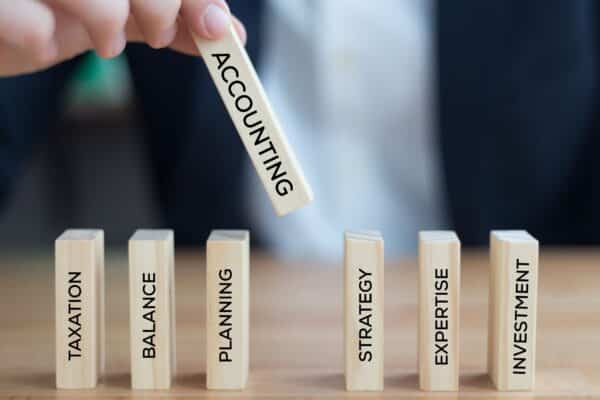Financial Year End in Hong Kong: Essential Know-How
Understanding the financial year end in Hong Kong is vital for overseas companies seeking to establish a presence in this thriving city and for local companies already incorporated here.
The financial year end marks the completion of a company’s twelve-month accounting period, significantly impacting accounting practices, tax obligations, and business operations.
In this article, we will explore the key aspects related to the financial year end in Hong Kong and provide insights so you can make informed decisions.
Whether you are looking to choose a suitable financial year end (FYE), considering changing it, or seeking expert guidance on accounting, tax, and business consulting matters, our dedicated team is ready to assist you every step of the way.
What is a financial year in Hong Kong?
In Hong Kong, a financial year, also known as a fiscal year, is normally a period of any 12 consecutive months that a company uses for accounting purposes and preparing financial statements.
Unlike the calendar year, the financial year can commence on any date as long as it encompasses a continuous and consecutive period of twelve months.
Do note that the FYE date does not necessarily coincide with the anniversary month of the company’s incorporation, as one can set their own financial year end date.
The first financial year end
In Hong Kong, a company’s first financial year end typically commences on the date of its incorporation and concludes on a date determined by the company’s directors (which should be decided by the date of incorporation for better compliance and financial planning purposes).
Many companies in Hong Kong prefer to fix their financial year end on:
- December 31st, to run with the calendar year; or
- March 31st, aligning it with the Hong Kong Government’s financial year.
However, there are instances where recently incorporated companies might fail to specify a financial year end date under the new Companies Ordinance. In such cases, if the company directors do not decide on a date, the financial year end date will be automatically set as the last day of the month in which the company’s first anniversary of incorporation falls. For example, an incorporation date of 9 July 2023, would mean a financial year end date of 31 July 2024.
The first year end should fall within 18 months from the date of incorporation, ensuring consistency and compliance with statutory requirements.
In other words, the first financial year period of a Hong Kong company should not be more than 18 months from the date of incorporation.
Properly setting the first FYE lays the foundation for future reporting cycles and establishes a clear and organized accounting framework.
What to consider when choosing a financial year end date
When you determine your company’s financial year end date, take accounting, tax and operational perspectives into account, to choose the most beneficial date.
Accounting
When choosing a financial year end date for your company in Hong Kong, accounting considerations play a significant role in ensuring a streamlined and efficient accounting process.
If your company is part of a group of companies (holding company with subsidiaries), it is advisable to adopt the same financial year end for all entities, unless there are compelling reasons not to do so. This alignment makes accounts preparation easier.
Having the same financial year end across the group saves time and also significantly reduces costs related to accounting and auditing tasks.
In addition, some companies will take into consideration their sales or business cycles when determining their financial year end date – more on this below in the ‘business operations’ section.
Tax
When selecting a financial year end date for your company in Hong Kong, tax implications are another factor to consider.
The financial year end directly impacts the timing and requirements for filing Profit Tax Returns (PTR). It is essential to be mindful of the deadlines set by the Inland Revenue Department (IRD).
The filing deadline for your PTR generally depends on whether you have appointed a tax representative and the specific financial year end date chosen by your company.
Normally, the PTRs are issued by the IRD to taxpayers in early April. The filing due date of the PTRs together with the audited financial statements for the relevant period is within one month of the date of issuance, i.e. early May.
If you have appointed a tax representative, such as HKWJ Tax Law & Partners, to handle the tax filing, the filing due date can in general be extended as follows:
| Financial Year End Date | Extended Filing Due Date (Note 1) |
|---|---|
| From 1 April to 30 November (Accounting Date Code “N”) | Early May next year (i.e. no extension will be granted) |
| From 1 December to 31 December (Accounting Date Code “D”) | Mid-August next year |
| From 1 January to 31 March (Accounting Date Code “M”) | Mid-November the same year (Note 2) |
- If the filing is performed online, the due date can be (further) extended by one month.
- If the taxpayers incur tax loss for that year of assessment, the filing deadline can be further extended for about 2 months to January next year.
If you do not appoint a tax representative to handle the Profits Tax Return filing, technically speaking, it is required to lodge an application with the IRD for an extension to file the PTRs.
The IRD typically issues the first Profits Tax Return to a company within 18 months of its incorporation.
When deciding on your financial year end, consider whether the reporting deadline aligns with the peak season of your industry and whether it may impact your company’s cash flow during the months when tax payments are due.
By carefully considering the tax implications of your chosen FYE you can effectively plan for tax obligations, avoid potential penalties, and ensure smooth and efficient tax compliance for your company in Hong Kong.
One can change the FYE date of a company. However, the IRD might review whether such change has any tax implications/consequences, e.g. for delaying the tax payment or obtaining any tax benefits, and make the tax adjustments accordingly. Therefore, it is suggested to have commercial reason(s) for changing the FYE date.
Business operations
Aligning the FYE with your business cycle is essential for accurately capturing your company’s revenue and expenses in the same tax year.
Selecting a fiscal year end during a less busy month can ease the workload for your accounting department and facilitate smoother financial reporting processes.
Many companies choose a fiscal year end that coincides with the conclusion of any quarter, such as March 31st, September 30th, or December 31st. This ensures that businesses can account for any fluctuations in revenue and activity until the end of the quarter, providing a more comprehensive financial picture.
How to change a financial year end
Changing the financial year end date of a Hong Kong company is permitted under the Hong Kong Companies Ordinance and Accounting Standards, provided there are valid reasons for doing so.
There are several situations in which a company may consider changing its FYE:
- Alignment with the Hong Kong Government’s fiscal year: Many companies in Hong Kong prefer to align their financial year end date with the end of the fiscal year on March 31st.
- Becoming a member company of a group: A common reason for changing the financial year end is when a Hong Kong company becomes a member of a group and needs to align its financial reporting with the other group companies.
However, there are certain limitations and considerations that impact a company’s ability to change its financial year end date:
- The first financial year or period after the change must not be extended to more than 18 months to maintain consistency.
- In general, director’s approval is required to change the year end date. If it is not the first time the FYE has been changed or extended, shareholders’ approval is also required, except when aligning with the holding company’s FYE.
- For public companies or companies limited by guarantee, the change must be reported to the Companies Registry within 15 days.
Once a company changes its financial year end, it must be mindful of any necessary accounting adjustments for financial statements, as this change may have implications on profits tax obligations and result in a recomputation of current tax liabilities as mentioned above.
In order to know in advance whether the intended change of the FYE date will result into any tax adjustments by the IRD, one can apply for an advanced ruling with the IRD.
HKWJ can help
Choosing the right financial year end date holds significant implications for accounting, taxation, and business operations.
Aligning the financial year end with related companies within a group can streamline accounting processes, while considering tax obligations and business cycles ensures accurate financial reporting.
If you need expert guidance on financial year end selection, changing your financial year, advanced ruling or any other accounting, tax, and business consulting needs, feel free to reach out to our experienced team.
We are here to help you navigate the complexities of running a successful business in Hong Kong. Contact us now for professional support via the form below.






